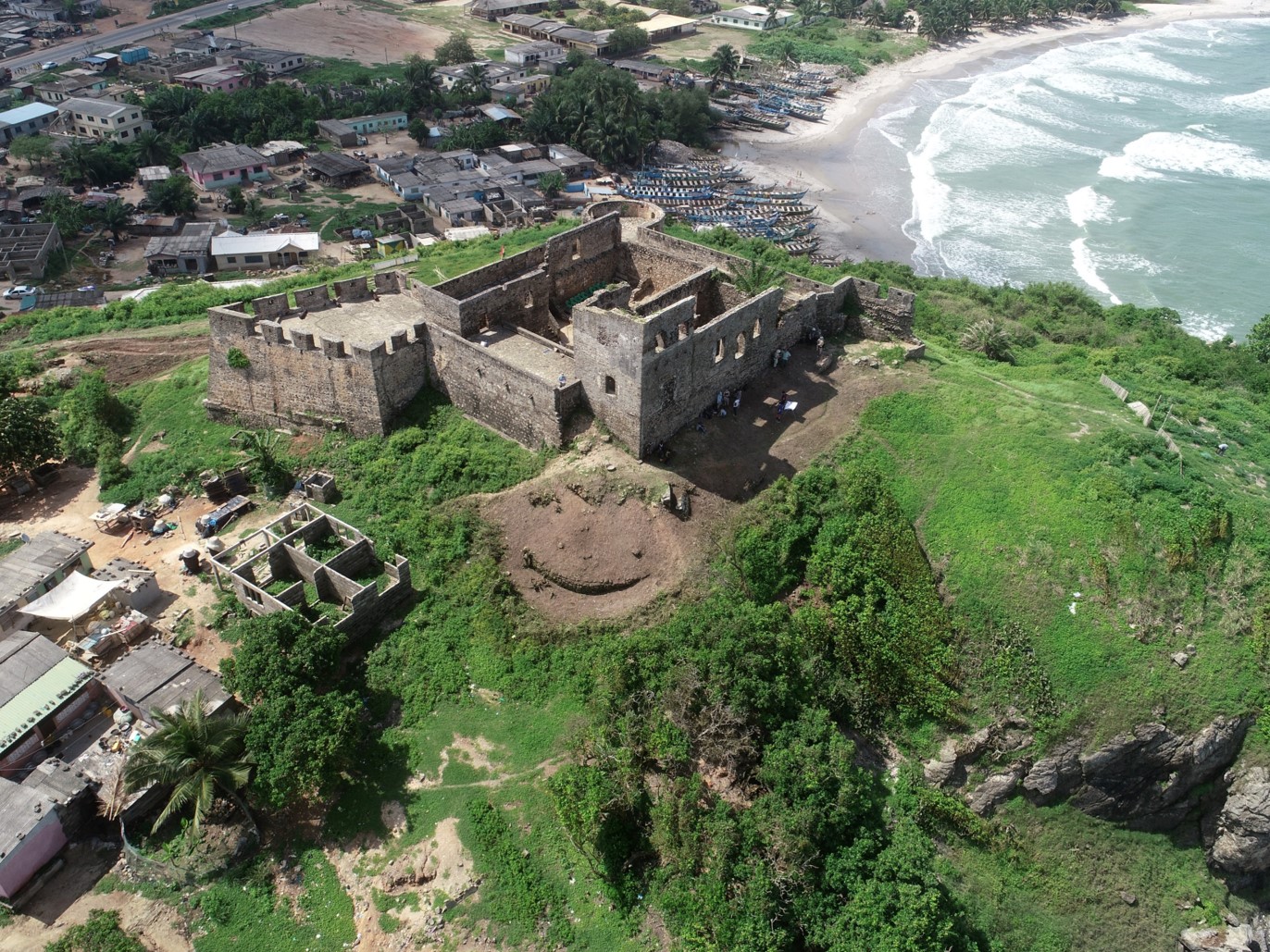Under Arent de Groot’s leadership, the English Guinea Company establishes a trading lodge at Cormantine Beach, built with the help of workers from nearby Great Kormantin.
The English presence created a new service economy around the English trading lodge, which attracted many families from Old Kormantin to relocate there and establish a new “Crom” (village adjoining a fort or trading post) on the hilltop to the west of the post. Villagers provided food and accommodations to merchants arriving from Accra with gold to trade and the dozens of slave porters who accompanied them. Others profited by moving inland traders and the goods they purchased through the hazardous surf between Cormantine Beach and the Dutch leggers anchored offshore. African trade with rival Dutch and English factors created additional demand for fish, grain, fresh water, canoes, and temporary warehouse space. Anglo-Dutch commercial competition quickly transformed New Cormantine into a sizeable, economically diversified port and a regional magnet for interior gold trading nations.


